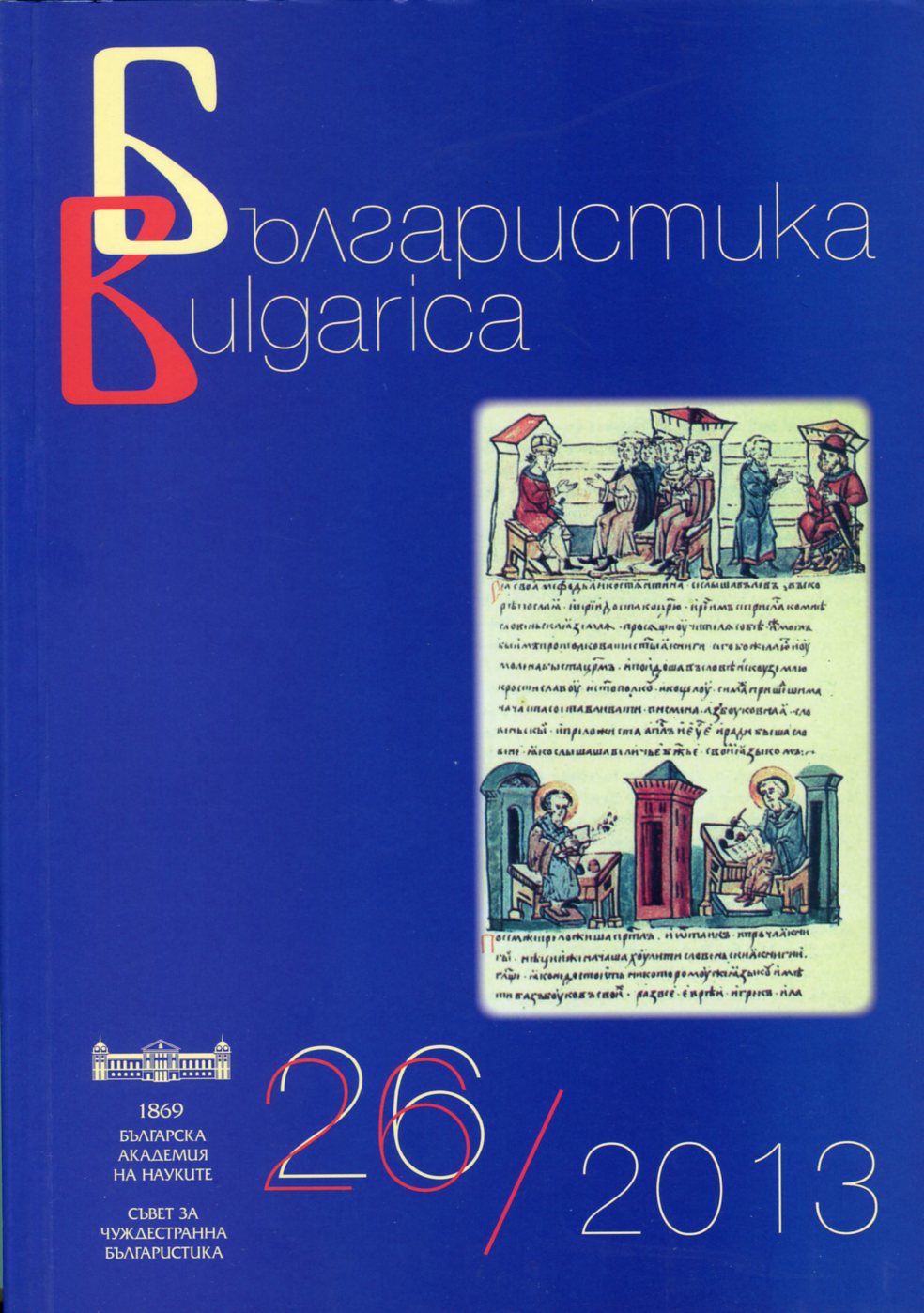
Книги 2012–2013 г.
Selected bibliography in the field of Bulgarian Studies published in the current year.
More...We kindly inform you that, as long as the subject affiliation of our 300.000+ articles is in progress, you might get unsufficient or no results on your third level or second level search. In this case, please broaden your search criteria.

Selected bibliography in the field of Bulgarian Studies published in the current year.
More...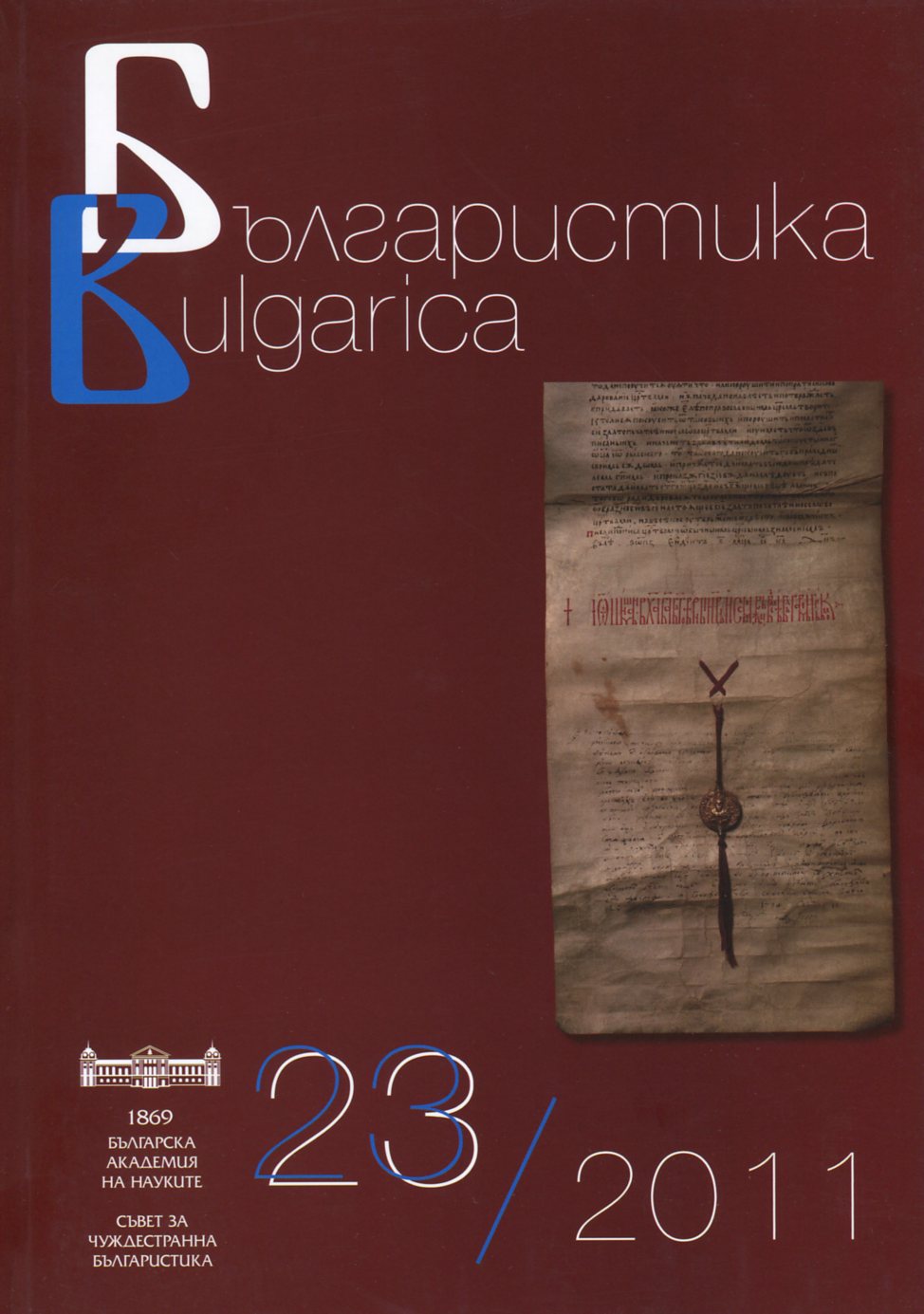
Selected bibliography in the field of Bulgarian Studies published in the current year
More...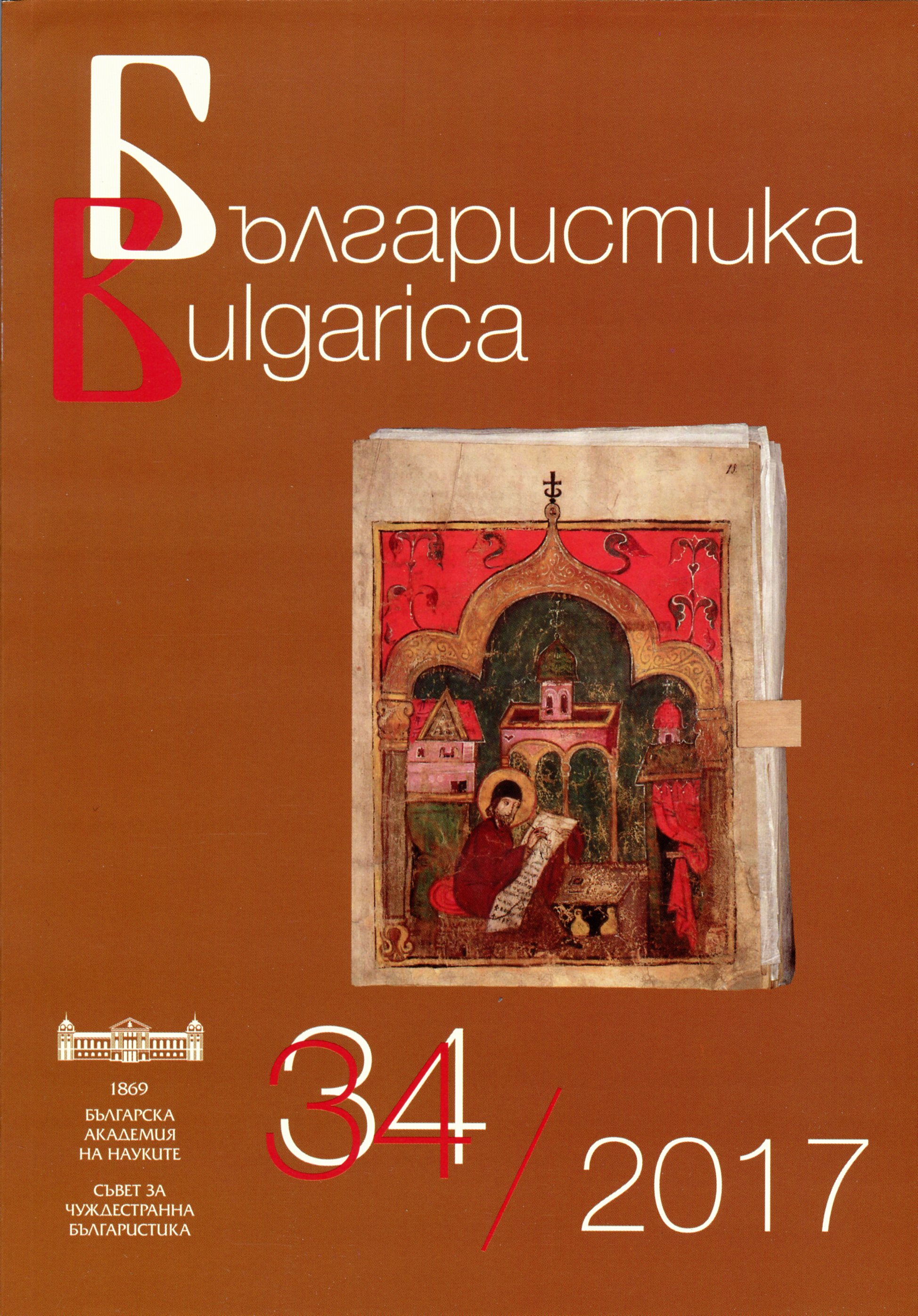
Selected bibliography in the field of Bulgarian Studies published in the current year
More...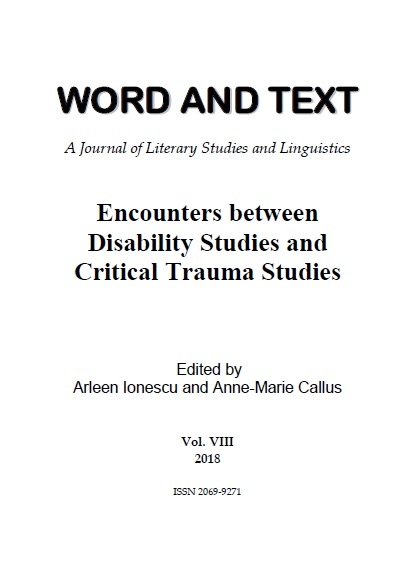
This article introduces Tod Browning’s 1932 film Freaks, in conversation with nineteenth century carnival and fair practices and further explains the creation and development of the freakshow. In tandem with theoretical work by authors such as Judith Butler, Rosemarie Garland-Thomson, Adrianna Cavarero and Lennard Davis, the article positions the freakshow within disability and trauma through the notions of ‘staring’, ‘normal’ and ‘horrorism’. Using two contemporary texts such as American Horror Story: Freakshow and the reality television series Freakshow, this article firstly introduces these texts thematically before analysing all three in conversation with one another as a means of further contextualizing the role of the freakshow in contemporary cultural products, then connecting these texts to the notion of violence and the use of disability as a tool for horror. The article concludes that although the freakshow has been dismantled in the literal sense, the obvious bodily difference that predicates it still remains present in today’s cultural sphere.
More...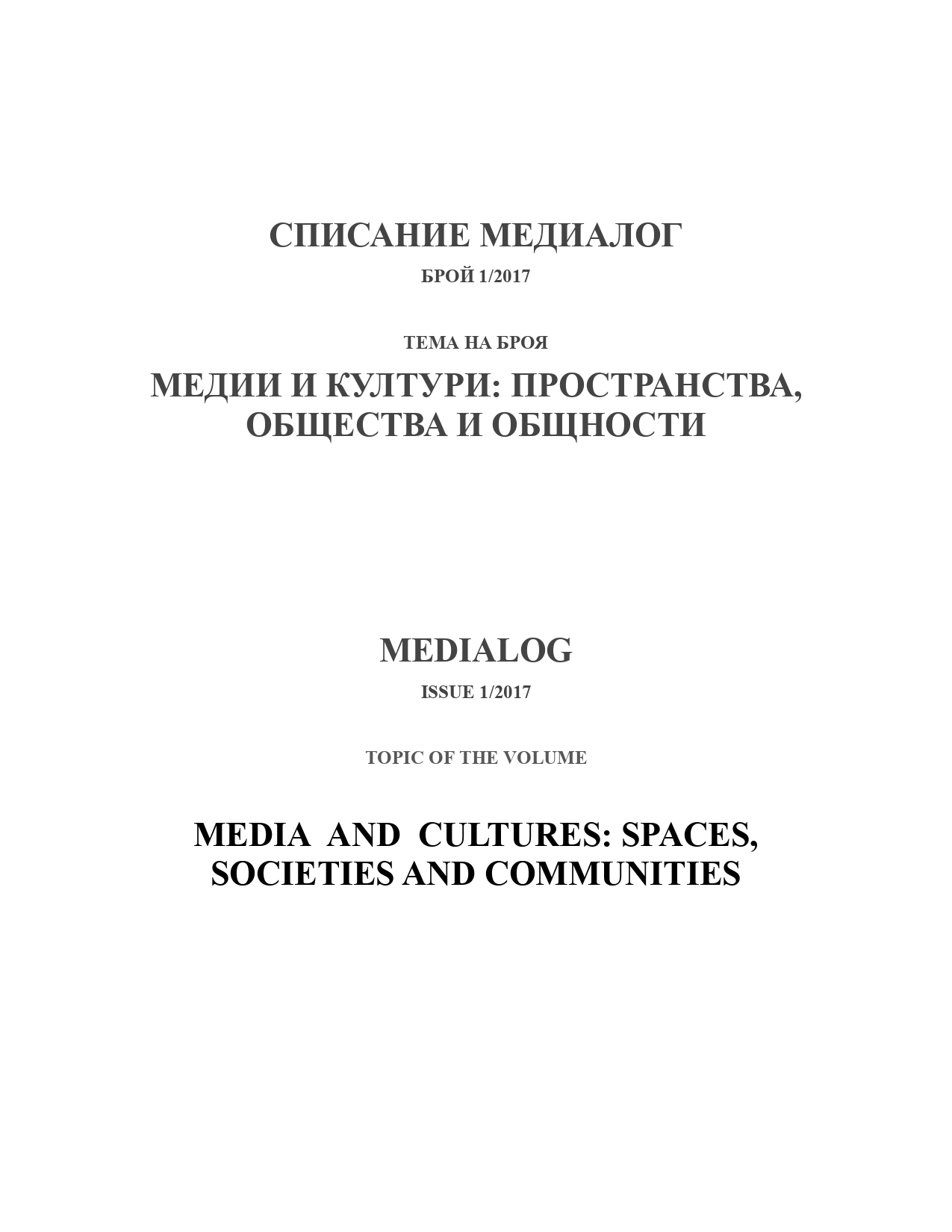
The introductory article of the first issue of 'Medialog' journal presents the new academic journal, part of a new media culture portal. 'Medialog' is a journey into the media worlds. 'Medialog' is an invitation to dialogue addressed to academic researchers and university lecturers, PhD students and students; to all who are curious to understand something more and different about media, communications and culture.
More...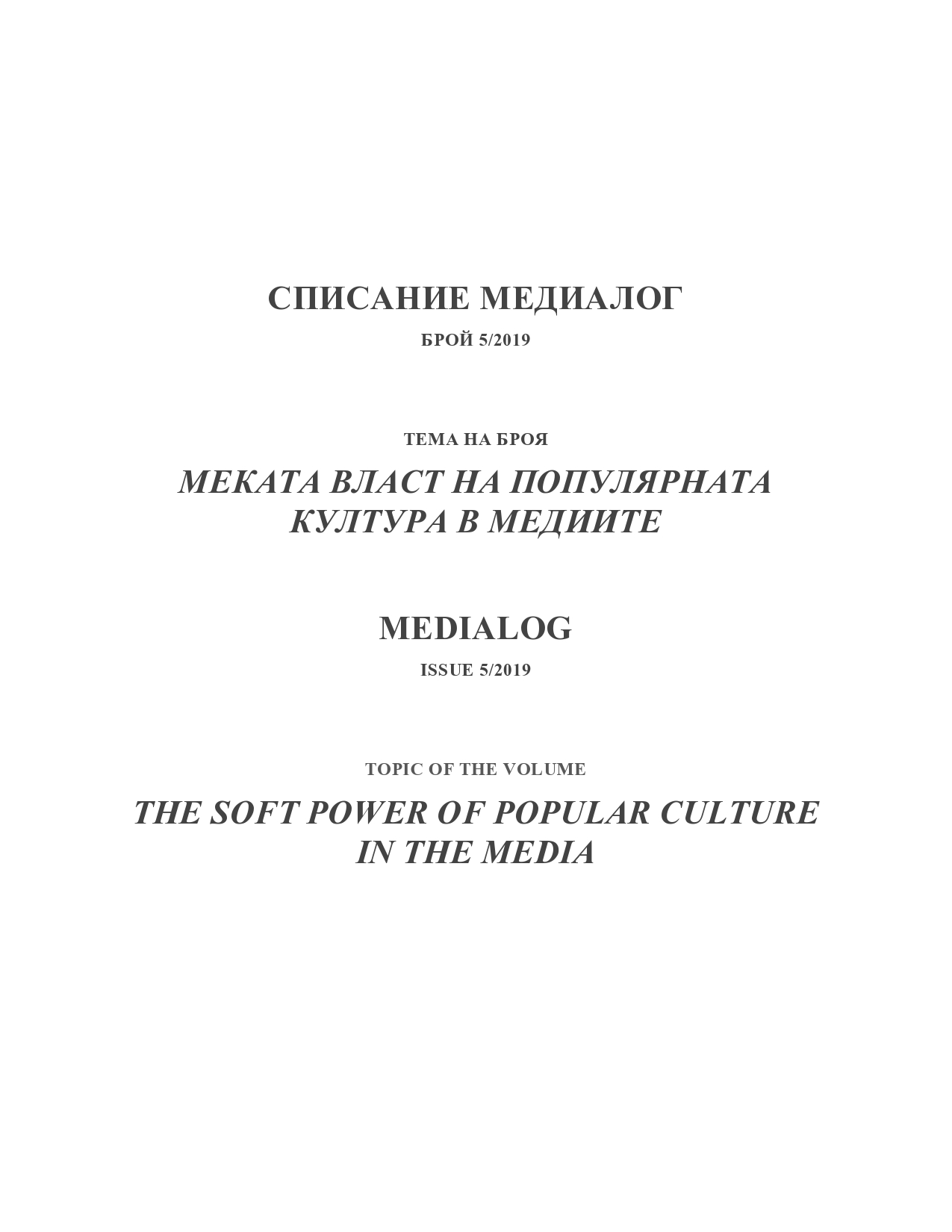
A review of Ivaylo Dichev’s book „Cultural scenes of the political”
More...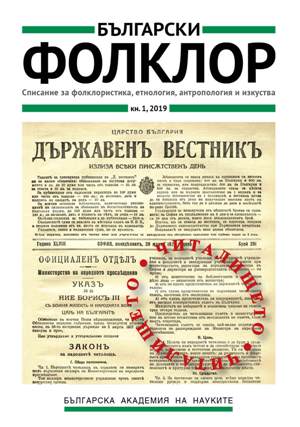
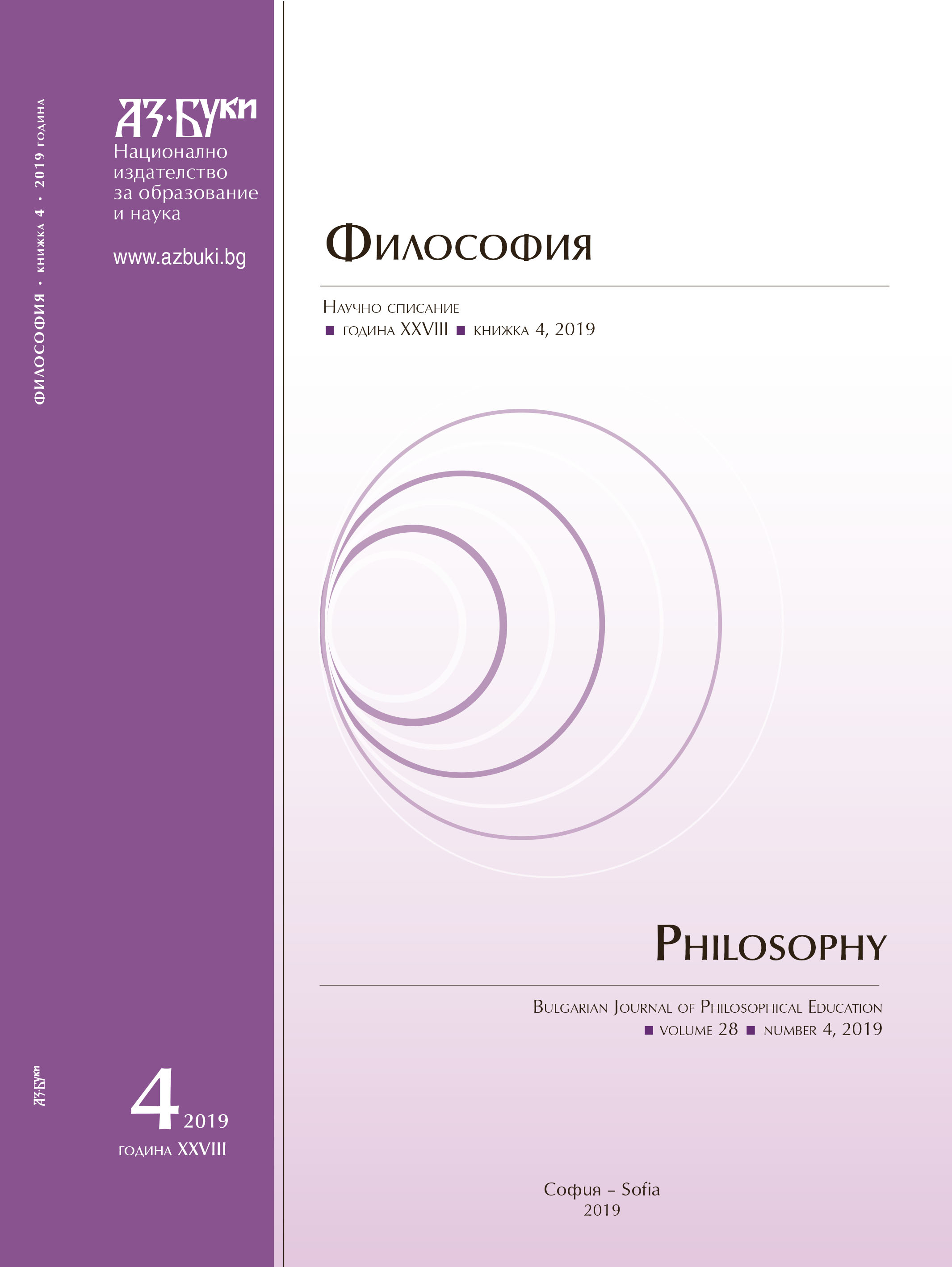
Determining the structuring models of communication in the plane of cinema art – the paradigms of communication in the field of art that mediate not only the interactions in the ‘author-film-audience’ relation but also function as implicit premises, both in the creation of a film and the establishment of its expressional, emotional and meaning consistency, and in its being perceived, experienced and understood by each separate viewer, as well as by the audience as a whole – would contribute to the restored legitimacy of cinema as an art in the current informational and cultural contexts.
More...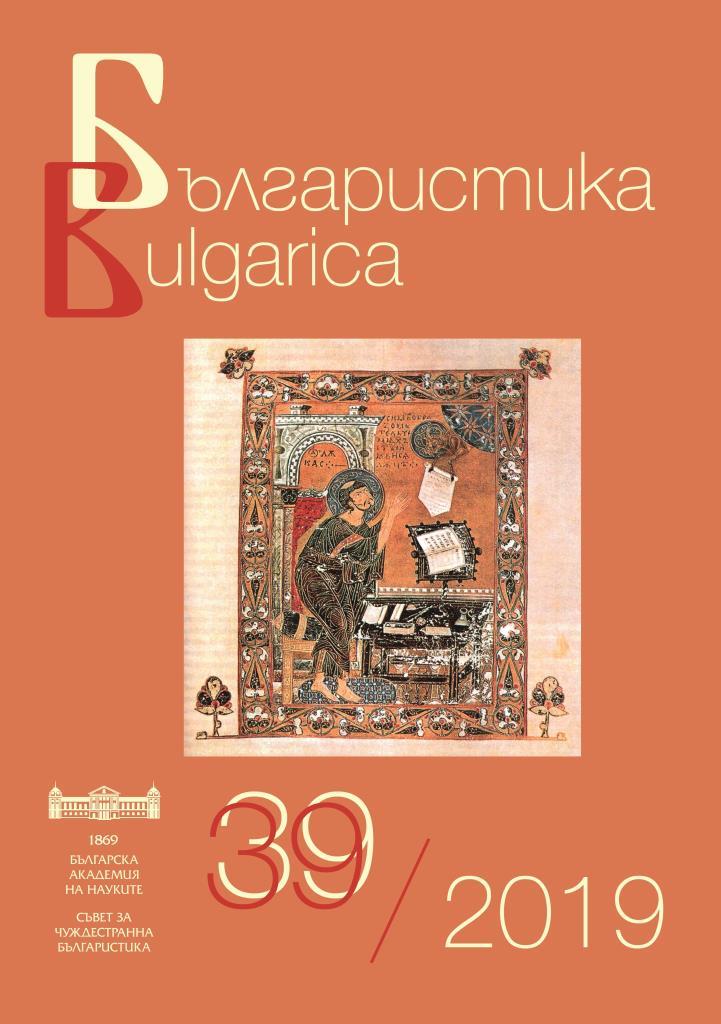
Selected bibliography in the field of Bulgarian Studies published in the current year.
More...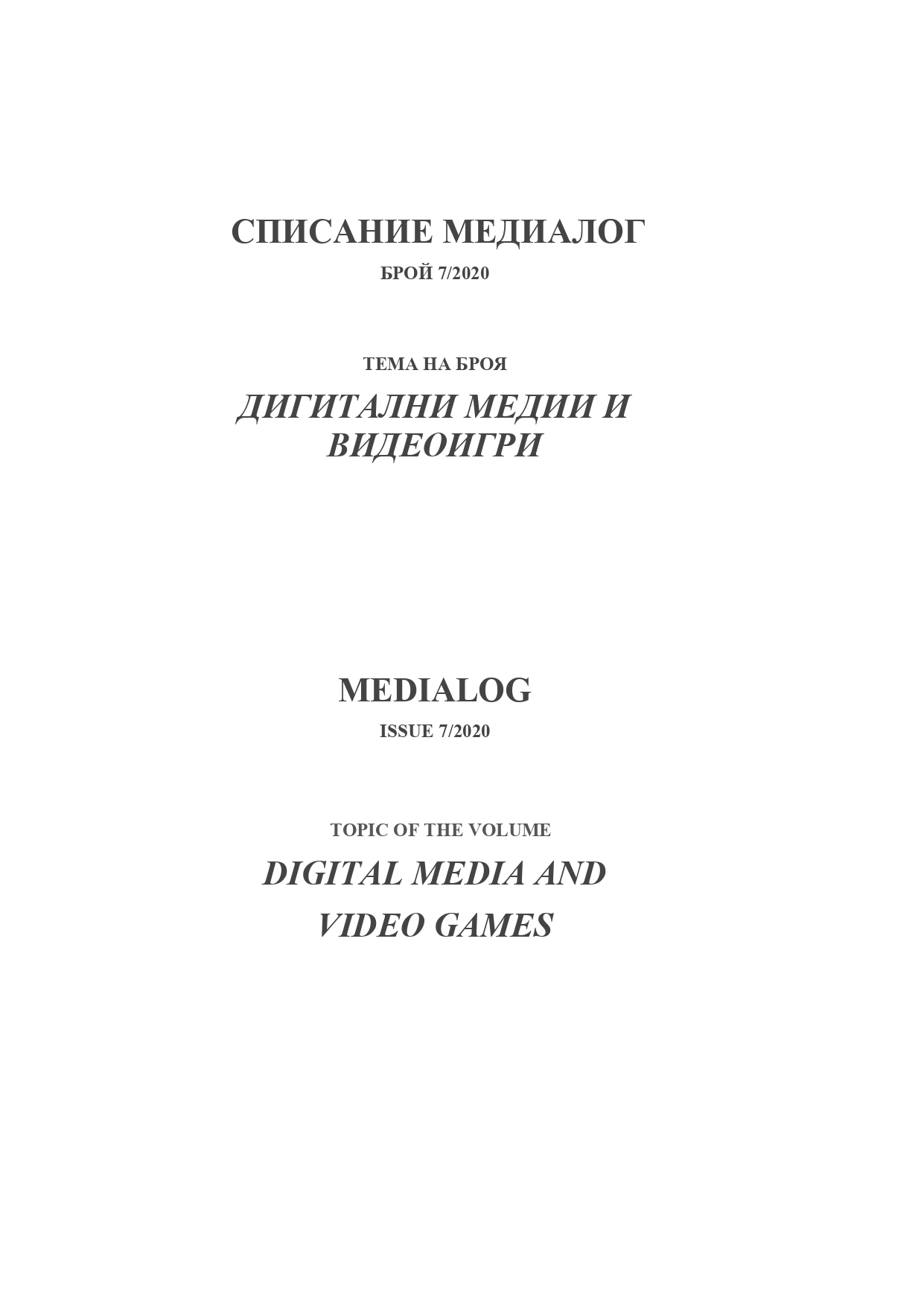
The article’s goal is to imagine a productive form of teaching creative writing as part of a Master's program in fields only remotely connected to literature and literary studies, such as digital media and videogames research. The text begins with a discussion on talent as the ability to perceive and submit to adequate and working models of writing. The topic is then further developed by analyzing talent within the framework of specific creative tools such as close reading and worldbuilding. Finally, the idea of creative writing as a model oriented and model guided activity is connected to the nature of the computer game as a space inhabited by a variety of new discourses, which the player - like a careful and attentive reader – has to learn to read and work with, thus making them part of her personal experience.
More...
A review of the collection “The Soft power of popular music in media (by examples from Bulgaria and the Balkans”, comp. Lozanka Peicheva. Sofia: “St. Kliment Ohridski” University Press, 2020 (160 p.). The collection is part of research collective’s work on the eponymous scientific project “The soft power of popular music in media (by examples from Bulgaria and the Balkans”, financed by the Bulgarian national science fund.
More...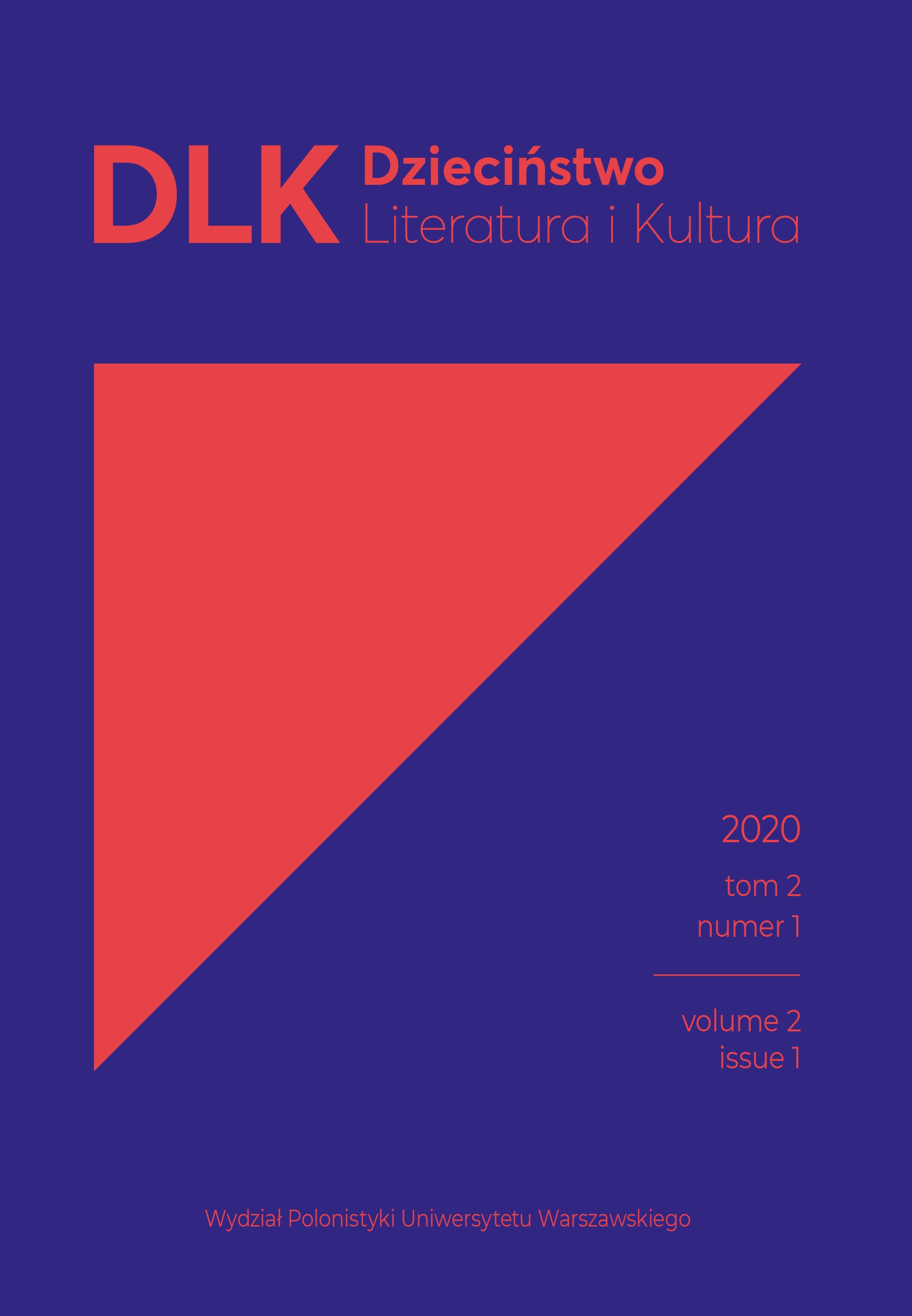
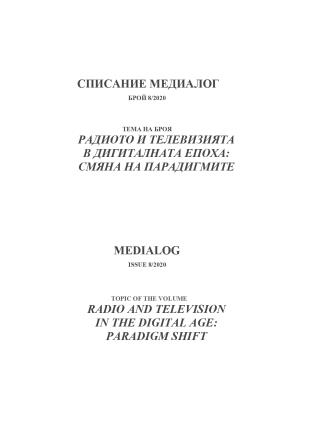
The study focuses on part of the submerged heritage under the waters of several dams in Bulgaria (Ovcharitsa, Rozov Kladenets and Tsonevo). Popular folk singers (Stefka Sabotinova and Penka Pavlova) and singing groups and local singers („Sminana Kitka“, Silvia Dimitrova), who keep songs from the sunken villages, are presented. The focus is on research and knowledge of folklore as a pillar of memory, in the case of the village of Asparuhovo, near and under the waters of Tsonevo Dam. Emphasis is placed on the role of various media and especially digital new media spaces for the „emergence” of the traditional song heritage from the villages left at the bottom of various dams.
More...
Two decades after the publication of the Green Paper on the convergence (1997), radio and television are not only creating and disseminating more and more digital content through digital technologies but are striving for an increasingly integrated online presence. Along with search engines, internet platforms have become an important intermediary between media service providers and audiences whose habits have changed dramatically in the second decade of the 21st century. Broadcast media (BM) have no choice but to be where the users of media content are - content of different quality, origin, purpose, logic of distribution. At the same time, audiences are overwhelmed with mis- and disinformation, which often comes from fake pages and profiles posing as legitimate media organizations, and set against trustworthy media and journalists from public figures. This creates an information crisis, which can be counteracted both by legislative measures and by empowering the audience with media literacy. And while the implementation of educational reform is a slow process, the BM, which still have the largest audiences and are most trusted, can play an essential role in increasing the media literacy of citizens. A function of great public importance, at the same time entirely in their interest.
More...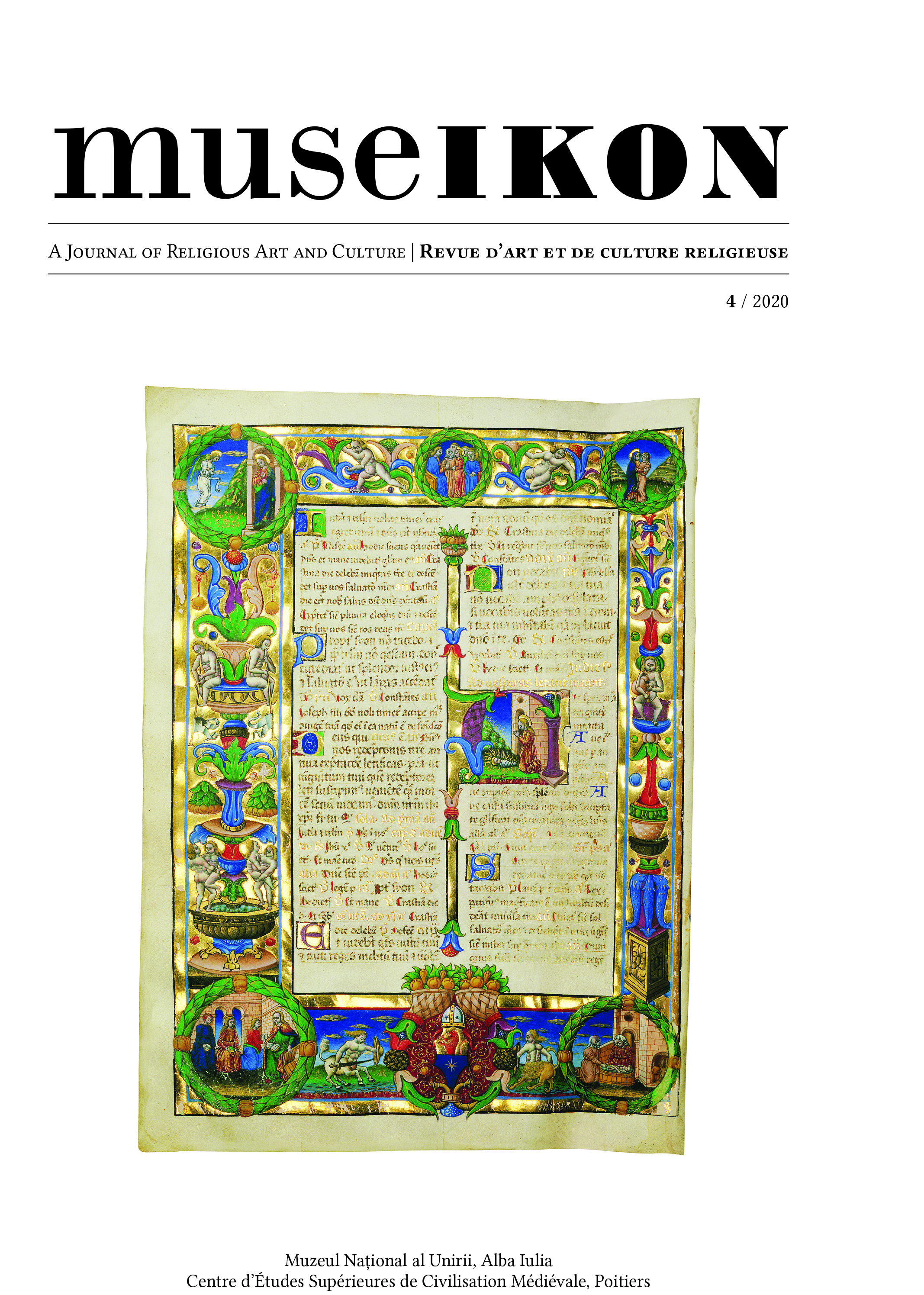
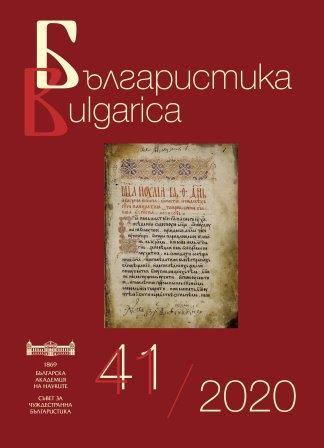
Content of the main Bulgarian scientific journals for the current year in linguistics, literature, history, folklore, ethnography, archaeology and art studies
More...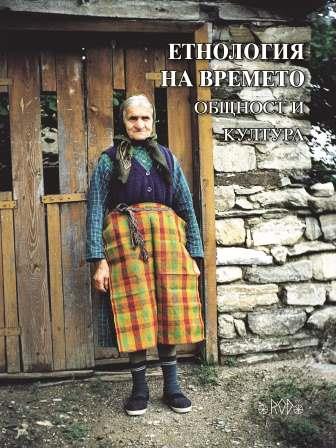
The Bulgarian photographer and researcher, Petar Boev, was appointed as the leader of the first journalistic delegation that visited Vardarska Macedonia from June 8th to June 16th, 1942. The delegation visited dozens of towns, capturing moments of the lives of Bulgarians in Vardarska Macedonia. He took over 100 photographs, which are diligently arranged in an album from Petar Boev’s personal archive. The album was entirely designed by Petar Boev, with beautifully written texts. In addition to the texts, a detailed map of the visited places during the journey was drawn. These photographs, besides being exquisite photographic specimens, hold historical and ethnographic significance. They serve as evidence of the authentic way of life of Bulgarians from the Macedonian folklore region, which remained characteristic until the middle of the 20th century. Petar Boev was a prominent figure active in various spheres of Bulgarian cultural life in the 20th century.
More...
The article explores contemporary tendencies in the art world that incorporate elements from various spiritual practices and customs to reinterpret cultural identity and community. This analysis focuses on the methods by which filmmakers and theatrical creators embed mythological and ritualistic elements into their narrative structures to reach deeper levels of perception and stimulate the audience’s imagination for reconsidering existence in a new context.
More...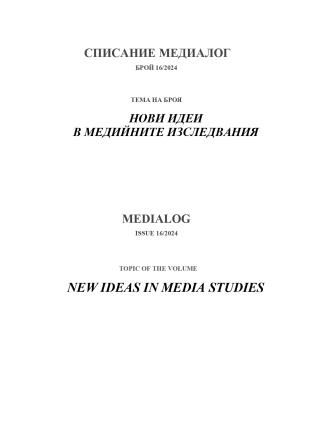
Mobile Journalism is often the subject of debate - is every journalistic assignment outside a studio or newsroom Mobile Journalism and whether the mobility of devices makes journalism mobile? This study presents another angle to the topic of Mobile Journalism, namely focusing on Smartphone Journalism. Why does one particular device stand out among the many technological innovations? The revolution in the field of journalism comes precisely from smartphones due to a specific reason – the liberalization of content distribution channels. These are the first devices in such a wide-scale use, where traditional media systems no longer control the channels for content to reach audiences. The article presents data, collected as part of the International Project: “Mobile Journalism Practice and Education in Central-East European Countries”
More...
The text explores laughter in the Horizont za vas show on the Bulgarian National Radio during two election campaigns for parliament. It analyses the dialogues with listeners and the documents that regulate what is legally acceptable to discuss during a campaign and what is not. The rare instances of on-air humor are not sought by journalists in purpose, and in most cases, are not intended by the audience either. The topics discussed, including the elections, are not approached through humor. The attempts to control communication on both sides are notable. Political satire is not present in the studio, domesticated by the contenders vying for power.
More...